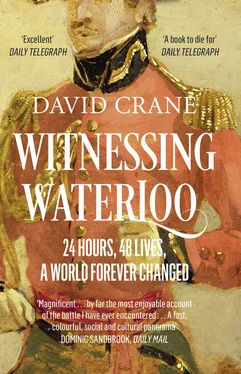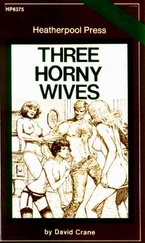There were still outstanding issues and open sores – in Germany, in Italy, in Switzerland, with the Catholic Church, with disgruntled minor sovereigns and bitterly disappointed liberals and patriots – but if nobody had everything they wanted, nobody either had gone to war. Over the past six months there had been any number of potential flashpoints that might easily have led to bloodshed, but with an inimitable mixture of diplomacy, frivolity and old-fashioned horse-trading that marked the Congress of Vienna, Bourbon France had again been integrated into the brotherhood of civilised nations, Prussian and Russian territorial ambitions accommodated, British concerns over the Low Countries met and the principle of legitimacy – tempered with a brutal streak of realpolitik – firmly reasserted without recourse to arms. ‘May security, confidence and hope revive everywhere,’ read a draft declaration drawn up by the British, ‘and with them peaceful labour, progress in industry, and prosperity, both public and private! May sombre anxiety for the future not awaken or bring back the evils whose return the sovereigns would wish to prevent and whose last trace they would like to efface! May religious feeling, respect for established authority, obedience to the law and horror of everything that might disturb public order once again become the indissoluble ties of civil and political society! May fraternal relations, mutually useful and beneficent, be re-established between all lands! … And may homage at last be rendered to that eternal principle that there can be for nations as for individuals no real happiness but in the prosperity of all!’
It was an idealistic, if improbable dream – disinterest had been remarkable by its absence from the Congress – and even as the tired plenipotentiaries made their way to their beds or their mistresses on the morning of the 7th, couriers were on their way to Vienna to tell them the dream was over. At six that same morning the Austrian Foreign Secretary Count Metternich was woken by his valet with a despatch from Genoa marked ‘Urgent’, and within hours the whole of Vienna knew the worst: Napoleon Bonaparte, exiled by the allied powers to the island of Elba just eleven months earlier, had ‘disappeared’.
Neither the Austrian consul in Genoa nor the British representative in Florence had any idea where he was gone, but the money at Vienna was on Italy. In the rearrangement of Europe, Napoleon’s old marshal Joachim Murat had somehow clung on to the throne of Naples, but as British frigates desperately scoured the Mediterranean for some sign of the Great Disturber, Bonaparte himself, along with the small force of his old Imperial Guardsmen and Polish lancers that had been permitted him in his island exile, was landing on the French coast to reclaim his crown.
The ‘Tiger’, as the great portrait painter Sir Thomas Lawrence, with a Blake-like mix of awe and fear had called him, was again loose and when two days after Vienna the news reached Britain the country was swept up in a storm of excitement, speculation and fear. ‘What times we are living in,’ the ageing, half-cracked Mrs Piozzi – Dr Johnson’s Hester Thrale – wrote from Bath, a city, like some Regency Gomorrah, desperately searching Revelations to learn of its impending fate. ‘The events come forward as Scripture says they will do, like Pangs of Parturition; every Pain sharper than the last … I was a sad Blockhead to leave Faber’s Books upon the Prophecies behind me … they are so sought after now … While Buonaparte remained on Elba nobody thought of them: it must be very gratifying to the Author – That He should be immediately looked up to when all the Folks are wondering, and thinking What will come next? What will come next?’
It was a question that was being asked across the country, and for all the reliable intelligence that anyone had one that was as likely to be answered in Revelations as it was anywhere else. The first reports of Napoleon’s escape had not reached London until 9 March, and by then the news was more than ten days out of date and the desperate ‘adventurer’ who had landed near Antibes with barely a thousand men was already halfway to Paris and, ‘God knows how, and in the twinkling of an eye’, as The Champion’s editor, John Scott, reported from France, ‘up again and in all his meteor-like intensity shaking from his “horrid hair” portentous flashings over the astounded world’.
Antibes, Grasse, Castellane, Grenoble, Lyons – a man would need ‘the wings of a demon’ to keep pace with his progress, the Edinburgh Courier told its alarmed readers. No sooner had one shock been absorbed than there was another to face. On 7 March, Lord Fitzroy Somerset had written from Paris that there was nothing to fear for himself or his pregnant wife, but by the time the letter reached his brother in England the ‘monster’ that Marshal Ney had vowed to bring back in a cage was again emperor in his old capital and Louis XVIII once more on his way into exile.
‘What a dreadful prospect is thus suddenly opened to mankind! What dismay must not these tidings strike into the hearts of hundreds of thousands of human beings in every station of life,’ the great reforming lawyer, Sir Samuel Romilly, had written in his diary, and yet even as London held its breath and hoped, Europe was already mobilising for war. ‘Napoleon Bonaparte, by again appearing in France with projects of confusion and disorder,’ the Congress of Sovereigns famously declared, ‘has deprived himself of the protection of the law, and in consequence has placed himself without the pale of civil and social relations; and, as an enemy and disturber of the tranquillity of the world, has rendered himself liable to public vengeance.’
After less than a year of quiet, Europe was again in arms, and as the sovereigns at Vienna returned Napoleon’s protestations of peace unanswered, and the Duke of Wellington left the Austrian capital for Brussels to take command of the allied army in the Low Countries, a bewildered Britain took stock of the new reality. For more than twenty wearying years it had been at war with either Revolutionary or Napoleonic France, and for half the population those few delusory months sandwiched between Napoleon’s abdication and escape were virtually the only peace they had ever known.
For as long as many could remember the aspirations and hopes of a whole nation had effectively been put on hold. In terms of battlefield deaths the British Army would lose more lives on a single day in 1916 than it had in these twenty years combined, but by any other measure than a butcher’s bill it had been a ‘total war’, consuming the energies and talents of the whole country, changing the land and shrinking distances, stifling reform and reaching into every facet of life in a military and economic struggle that had left Britain with the undisputed command of the world’s trade, a national debt of £861 million, one in five of the population on the poor rates, and a whole thwarted generation longing for political change. ‘In 1814 a war which had lasted so long that war seemed our natural state was felt to be over,’ wrote the Edinburgh lawyer, Henry Cockburn, recalling the sense of a new beginning that Napoleon’s exile just eleven short months earlier had seemed to promise; ‘from this moment the appearance of everything was changed. Fear of invasion, contempt of economy, the glory of our arms, the propriety of suppressing every murmur at any home abuse, the utter absorption of every feeling in the duty of warlike union – these, and other principles, which for twenty years had sunk the whole morality of patriotism in the single object of acknowledging no defect or grievance in our own system, in order that we might be more powerful abroad, became all inapplicable to existing things.’
Читать дальше












